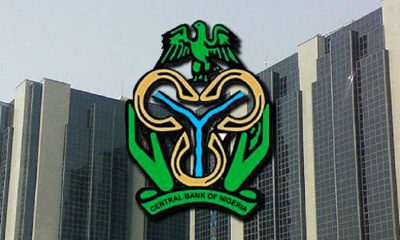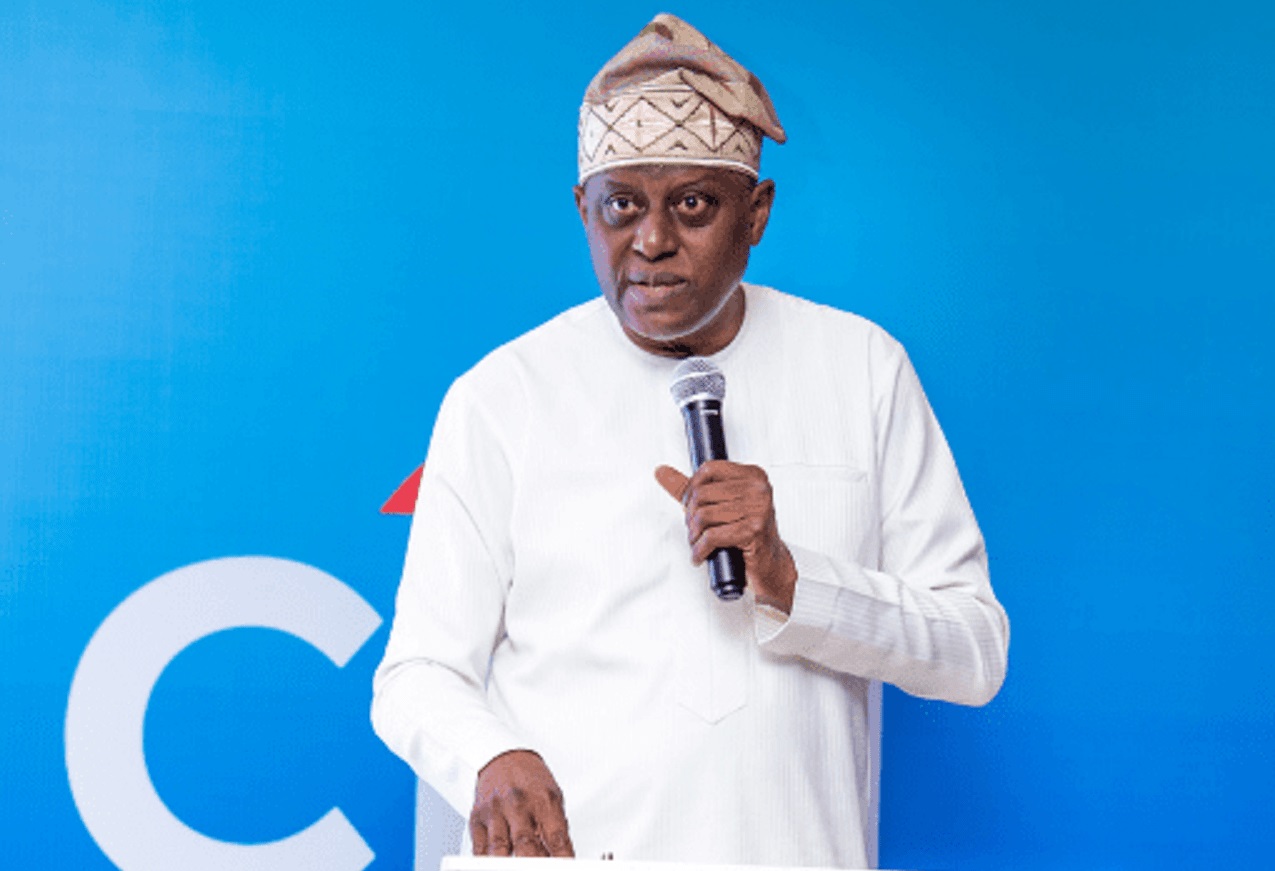Banking
Skye Bank On Edge Of Total Collapse?

By Dipo Olowookere
It is no doubt that since the Central Bank of Nigeria (CBN) changed the leadership of Skye Bank some weeks ago, the bank has not remained the same again.
Skye Bank and CBN have had to assured depositors and the general public that all is well, trying every possible means to allay the fears of people, especially depositors.
Also, the Lagos State government, which uses the bank for collection of different levies, including for tax collection and payment of workers’ salaries, has also said the bank is healthy. In fact, it told civil servants under its payroll not to close their accounts with the bank.
Vanguard takes a look at the issue and below was what the respected newspaper said on the issue.
Why CBN and Lagos state might fail to save Skye Bank
“SKYE Bank is not distressed.” CBN advert in several newspapers.
The Central Bank of Nigeria, CBN, and the Lagos State government have different reasons for desperately averting possible Skye Bank distress. Even the hint of likely distress inhibiting deposits and inviting a run on the bank is not in their interests. For the CBN, the collapse of any bank, at this time, is likely to create collateral damage affecting other banks, governments, the organized private sector and the financial system. So their anxiety on this matter is understandable.
Before the CBN advertisement, the Permanent Secretary, Lagos State Ministry of Finance was reported to have told Lagos State employees not to close their accounts with Skye bank.
The report was not clear whether what was issued was an order, a plea, or advice. None of them is without its perils for all concerned – Lagos State, the bank and the employees.
It is questionable if an employer, even a government can issue instructions to its employees regarding the bank to patronize after paying them.
While it might be acceptable for administrative reasons to request all employees to open accounts with a bank for salary transfers, it is doubtful if the state can force the civil servants to keep their money in the designated bank and risk their funds going down in case of distress.
Who then will suffer the consequences?
Advice, the public servants definitely don’t need especially when only the state’s and the bank’s interests will be served by compliance. SKYE bank certainly needs all the deposits it can get – more than ever before.
The state being a major shareholder in the bank also needs the bank to recover the confidence of other stakeholders in order to survive and perhaps improve its performance.
Depositors, including the staff of Lagos state, however, need a different sort of counsel. They need to be honestly informed about the real situation of the bank.
The CBN does not, without reason, order the change of directors and management of a bank unless a lot of things have gone wrong and some individuals charged with the management of the bank were involved – deliberately or inadvertently.
More perplexity is introduced by the fact that the directors and managers removed will apparently walk away without sanctions for putting every other stakeholder at risk.
Hundreds of thousands of depositors of SAVANNAH Bank and SOCIETE GENERALE Bank are still holding to empty air more than ten years after those banks were closed without previous warning from the CBN.
OCEANIC, INTERCONTINENTAL, BANKPHB etc were presented to the public as still strong banks until Sanusi replaced Soludo who helped to keep up the fiction of soundness.
So, why should depositors rely on a CBN which had failed them repeatedly and made them to pay dearly for it? To be quite candid, the last organization to declare a bank distressed is the CBN. Usually by then the depositors have been taken to the cleaners and their funds irretrievably lost.
Lagos state has its own problems with regard to SKYE Bank. Its shares in the bank, which sold for N17.50 per share in October 2008, are now going begging at 65 kobo per share.
The state has lost hundreds of millions of naira on that investment.
The quantum of loss is one of the most closely guarded secrets of the progressive governments since “Con-Soludo-tion” imposed by the CBN under Professor Soludo.
There is no shareholder alive who was not a victim of the calamity called “Con-Soludo-tion”. Lagos State is one of the biggest victims of the rush to acquire shares under “Con-Soludo-tion”, and it is understandable why the current government is eager to minimize the losses.
But, the truth remains. A grave mistake had been made; an error of judgment committed at the topmost levels of government.
As Agathon, 447-401 B.C, has reminded us, “Even God cannot change the past.” Lagos State is unlikely to recover those investments even if Ambode serves a second term.
The statement issued by the Perm Sec, if followed by public servants in the state, carries with it the risk that the state’s funds, now largely lost, will be followed down the drain by those of its staff – if anything goes wrong with SKYE Bank.
That would amount to a great disservice to the workers who were not consulted when the Governor who committed the state took the decision – admittedly in good faith.
But, such is life. There is always a lot of risk in banking. If there is none, everybody will be in banking. There is also a lot of risk in shareholding. If not, everybody will be in that venture too. In Nigeria, the combination of the two had almost always proved painful for a lot of people – except the insiders and manipulators who invariably walk away free. To some extent the reason Nigerian banking appears to be perpetually embroiled in crisis can be traced to our very lax laws which allow directors of banks to get away with their larcenies.
Until we stiffen the penalties for contraventions of banking rules, the nation will reel from one crisis to another.
Finally, it is curious that while others are desperately working to save the bank, its own directors are doing nothing. They are not reaching out to public opinion molders to present their plans for restoration of the bank.
http://www.vanguardngr.com/2016/08/cbn-lagos-state-might-fail-save-skye-bank/
Banking
Moniepoint Processes N412trn Transactions, Disburses N1trn Loans in 2025

By Adedapo Adesanya
Nigerian financial services firm, Moniepoint Incorporated, processed N412 trillion in transaction value and disbursed more than N1 trillion in loans to small businesses in 2025, as the company continues to grow Nigeria’s expanding retail payments and credit structure.
The company said it handled more than 14 billion transactions during the year and now powers about 80 per cent of in-person payments nationwide, underscoring the increasing concentration of payment flows through a small number of fintech platforms.
Moniepoint also averaged 1.67 billion monthly transactions in 2025 and grew its card user base by 200 per cent, with its cards being used 1.7 million times daily.
The organisation also processed over 500,000 data renewals daily, while customers spent N90 million ($64,264) daily at gyms.

Moniepoint’s scale reflects a broader shift in Nigeria’s payments landscape, where point-of-sale terminals and digital transfers have become central to everyday commerce, from neighbourhood shops to open-air markets.
Founded in 2015, Moniepoint has evolved from a backend technology provider into Nigeria’s largest merchant acquirer, offering payments, banking, credit, foreign exchange and business management tools to more than 6 million active businesses.
The company said it expanded lending to small businesses that are often excluded from bank credit, disbursing more than N1 trillion in loans through its microfinance banking unit in the year under review.
“Our focus has been on building infrastructure that works for how businesses actually operate,” said Mr Tosin Eniolorunda, Moniepoint’s founder and chief executive, pointing to the prevalence of informal trade in Africa’s largest economy.
In 2025, Moniepoint became a unicorn after it raised more than $200 million in a Series C funding round backed by investors including Development Partners International, Google’s Africa Investment Fund, Visa, the International Finance Corporation and Verod Capital, providing capital to scale its payments and financial services operations.
Beyond acquiring, the company said its switching and processing subsidiary, TeamApt Ltd, secured licences from Mastercard and Visa to operate as a processor and acquirer, enabling it to handle international card payments and provide switching services to other businesses across Africa. Its web payments gateway, Monnify, processed N25 trillion in transactions during the year.
Recently, the Central Bank of Nigeria (CBN) upgraded Moniepoint’s microfinance bank to a national microfinance bank licence, allowing it to expand its footprint across the country and broaden the range of products that it can offer.

Banking
Standard Bank Helps Aradel Energy With $250m Financing Facility

By Aduragbemi Omiyale
A $250 million financing facility to support the acquisition of about 40 per cent equity in ND Western Limited from Petrolin Trading Limited has been secured by Aradel Energy Limited, a wholly owned subsidiary of Aradel Holdings Plc.
The funding package was facility for the energy firm by Standard Bank, which comprises Stanbic IBTC Capital Limited, Stanbic IBTC Bank Limited, and the Standard Bank of South Africa Limited.
The facility, Business Post gathered, was structured to support Aradel Energy’s strategic growth agenda, the refinancing of existing loan facilities, and the funding of increased production from the company’s existing asset base.
Aradel Energy is the operator of the Ogbele and Omerelu onshore marginal fields, as well as OPL 227 in shallow water terrain.
Prior to the transaction, Aradel Energy held a 41.67 per cent equity interest in ND Western, and following the completion of the acquisition, its shareholding in ND Western has increased to 81.67 per cent.
ND Western holds a 45 per cent participating interest in OML 34 and a 50 per cent equity interest in Renaissance Africa Energy Company Limited, the operator of the Renaissance Joint Venture and a 30 per cent owner of one of Nigeria’s largest and most strategic energy portfolios.
As a result of the transaction, Aradel Energy’s indirect equity interest in Renaissance has increased to 53.3 per cent, significantly strengthening the company’s upstream position and long-term value creation potential.
Standard Bank acted as Global Coordinator and Bookrunner, leading the structuring, execution, and funding of the facility, affirming its deep sectoral expertise and reinforces its position as a leading financier in Africa’s energy industry.
This transaction reinforces Standard Bank Group’s commitment to providing strategic capital to clients as they execute on their transformative growth objectives.
By delivering tailored financing solutions that enable sustainable value creation, the Bank remains a trusted partner to leading corporations across Africa’s evolving energy landscape.
“As Aradel Energy consolidates its position as one of Nigeria’s leading oil and gas companies, Stanbic IBTC Bank is proud to serve as a trusted long-term partner supporting the company’s growth ambitions,” the Executive Director for Corporate and Transaction Banking at Stanbic IBTC Bank, Mr Eric Fajemisin, stated.
Also commenting, the Regional Head of Energy and Infrastructure Finance for West Africa at Standard Bank, Mr Cody Aduloju, said, “The transaction illustrates Standard Bank’s ability to deliver large-scale, tailored funding solutions and further demonstrates our support to the fast-growing indigenous companies of Nigeria’s oil and gas sector.”
The chief executive of Aradel Holdings, Mr Adegbite Falade, said, “The acquisition bolsters Aradel Energy’s competitive positioning across Nigeria’s oil and gas value chain and supports our commitment to strategic growth, asset optimisation, and enduring value creation. We are pleased to have partnered with Standard Bank, who supported us and delivered a fully funded solution under very tight timelines.”
Banking
CBN Upgrades Operating Licences of OPay, Moniepoint, Others to National

By Modupe Gbadeyanka
The operating licences of major financial technology (fintech) platforms like OPay and Moniepoint, have been upgraded to national by the Central Bank of Nigeria (CBN).
Also upgraded by the banking sector regulator were PalmPay, Kuda Bank, and Paga after compliance with some regulatory requirements, allowing them to operate across Nigeria.
Speaking at annual conference of the Committee of Heads of Banks’ Operations in Lagos recently, the Director of the Other Financial Institutions Supervision Department of the CBN, Mr Yemi Solaja, said the licences were upwardly reviewed after the financial institutions met some requirements, including the Know-Your-Customer (KYC) policy.
“Institutions like Moniepoint MFB, Opay, Kuda Bank, and others have now been upgraded. In practice, their operations are already nationwide,” he said at the event.
The upgrade also reinforces financial inclusion, as fintechs and agent networks continue to play a pivotal role in providing access to banking and payments services, especially in rural and underserved areas.
The central bank executive stressed the importance of physical presence for customer support.
According to him, “Most of their customers operate in the informal sector. They need a clear point of contact if any issues arise,” to strengthen internal controls, and enhance customer service, particularly around KYC and anti-money laundering (AML) processes.
-

 Feature/OPED6 years ago
Feature/OPED6 years agoDavos was Different this year
-
Travel/Tourism9 years ago
Lagos Seals Western Lodge Hotel In Ikorodu
-

 Showbiz3 years ago
Showbiz3 years agoEstranged Lover Releases Videos of Empress Njamah Bathing
-

 Banking8 years ago
Banking8 years agoSort Codes of GTBank Branches in Nigeria
-

 Economy3 years ago
Economy3 years agoSubsidy Removal: CNG at N130 Per Litre Cheaper Than Petrol—IPMAN
-

 Banking3 years ago
Banking3 years agoSort Codes of UBA Branches in Nigeria
-

 Banking3 years ago
Banking3 years agoFirst Bank Announces Planned Downtime
-

 Sports3 years ago
Sports3 years agoHighest Paid Nigerian Footballer – How Much Do Nigerian Footballers Earn























